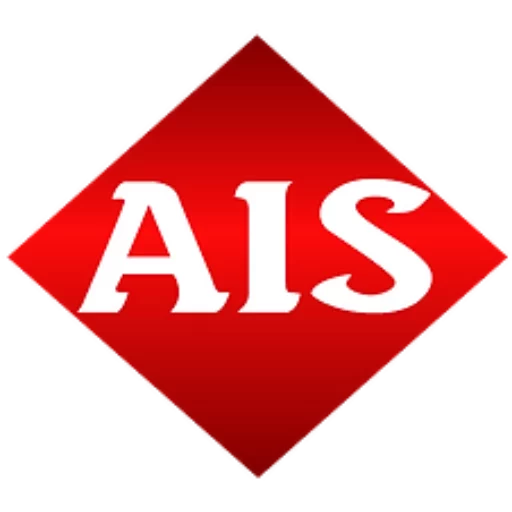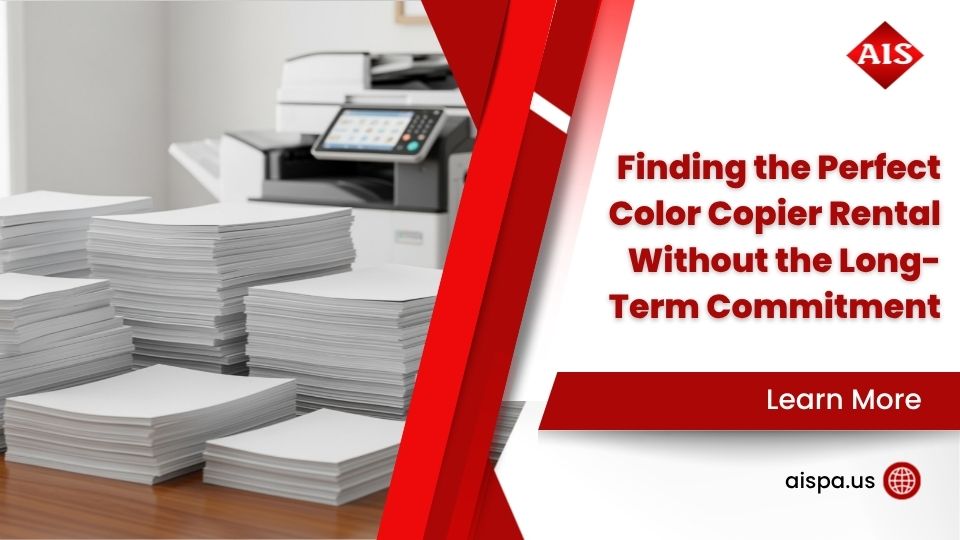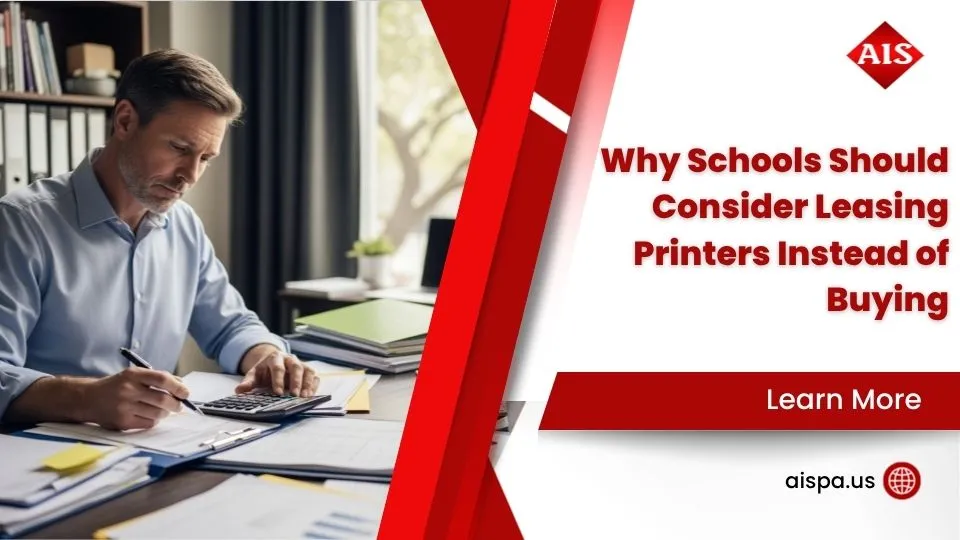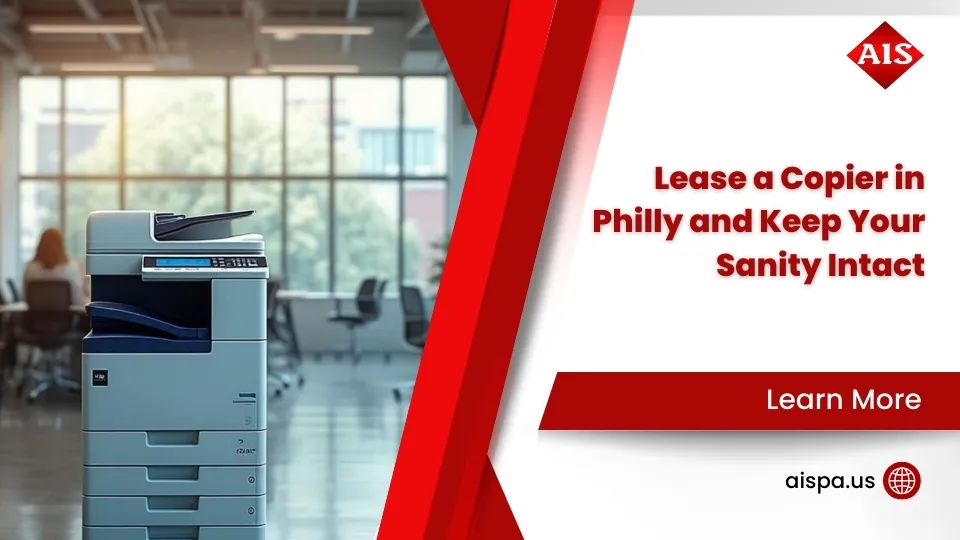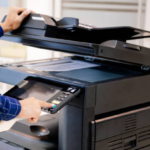Understanding the Cost-Benefit of Copier Leasing vs. Buying
Cost-Benefit of Copier Leasing vs. Buying
Choosing the right office equipment is crucial. One of the significant decisions businesses face is whether to lease or buy a copier. Both options have their benefits and drawbacks, and understanding these can help businesses make informed decisions that align with their operational needs and financial goals.
This article will explore the cost-benefit of copier leasing versus buying, offering insights into financial considerations, advantages, and disadvantages of each option, and key factors to consider.
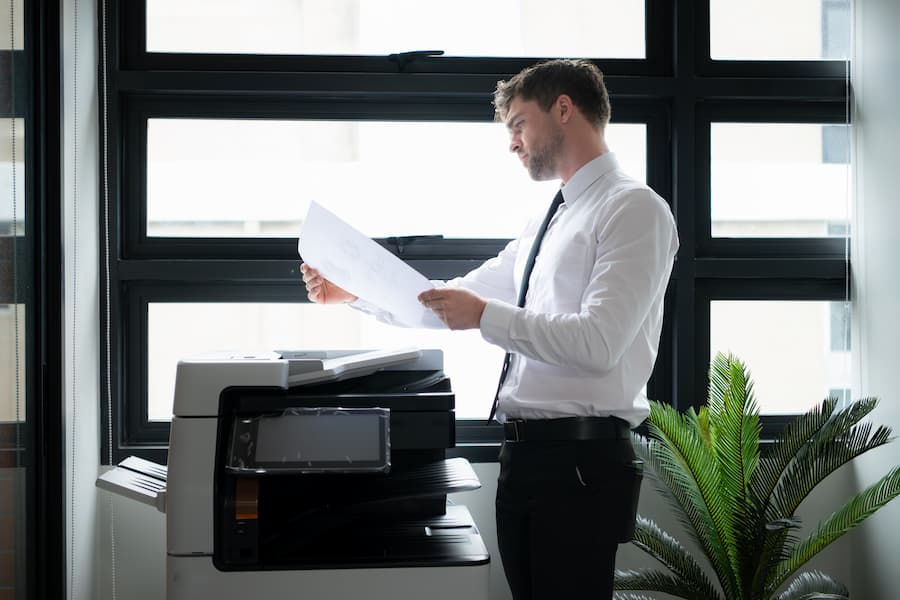
Copier Leasing vs. Buying
What is Copier Leasing?
Copier leasing involves renting a copier from a leasing company for a specified period. This option allows businesses to use high-quality, multifunction copiers without the high upfront cost associated with purchasing one outright. Lease terms can vary, typically ranging from 12 to 60 months, and the lease payments are made monthly or quarterly.
What Does Buying a Copier Entail?
Buying a copier means purchasing the equipment outright, giving the business full ownership. This involves a significant initial investment but eliminates ongoing lease payments. The business is responsible for maintenance, repairs, and eventual replacement of the copier.
Key Differences Between Leasing and Buying
- Ownership: Leasing printer provides access to the equipment without ownership, whereas buying grants full ownership.
- Cost Structure: Leasing involves ongoing monthly payments, while buying requires a large upfront cost.
- Maintenance and Upgrades: Leasing often includes maintenance and upgrade options, whereas buying requires separate arrangements for these services.
Financial Considerations
Initial Costs of Leasing vs. Buying
Leasing a copier typically requires little to no down payment, making it an attractive option for businesses looking to preserve cash flow. In contrast, buying a copier involves a significant upfront investment, which can be a strain on a company’s budget.
Monthly Lease Payments vs. One-Time Purchase Cost
Leasing printer spreads the cost of the copier over the lease term, resulting in predictable monthly payments. This can be beneficial for budgeting and financial planning. Buying, on the other hand, requires a large one-time payment, which can impact cash reserves.
Tax Benefits and Deductions
Leasing payments can often be deducted as a business expense, potentially reducing taxable income. When buying, the purchase cost can be depreciated over time, providing tax benefits. It’s essential to consult with a tax professional to understand the specific benefits for your business.
Impact on Cash Flow and Budget Planning
Leasing printer helps maintain cash flow by avoiding large upfront costs and providing predictable monthly expenses. This can be particularly advantageous for small businesses or those with fluctuating revenues. Buying ties up capital in a depreciating asset, which could limit financial flexibility.
Advantages of Leasing a Copier and Printer
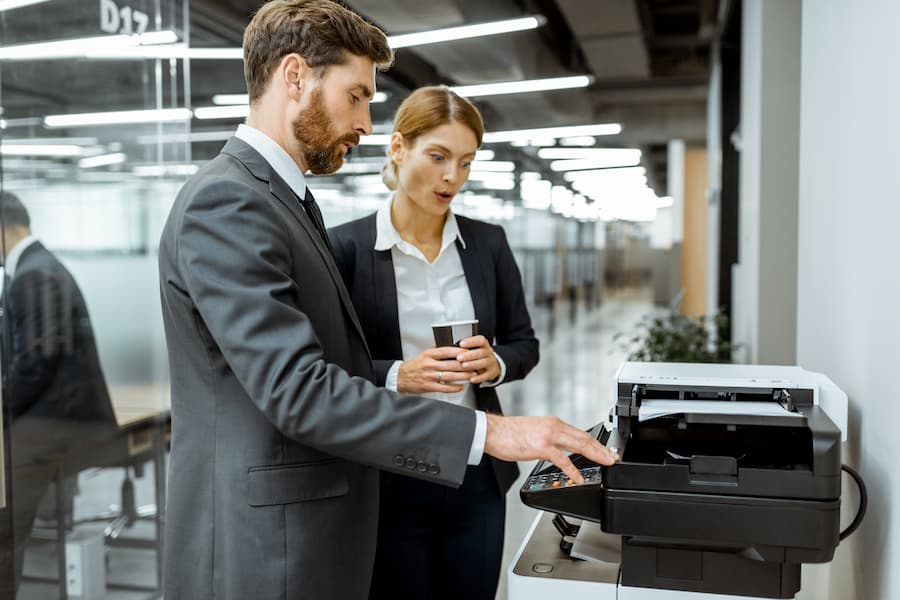
Lower Upfront Costs
One of the primary advantages of leasing a copier is the low initial cost. Businesses can acquire necessary equipment without a significant capital outlay, preserving cash for other essential expenses or investments.
Access to the Latest Technology
Leasing allows businesses to stay current with the latest copier technology. At the end of the lease term, companies can upgrade to new models, ensuring they always have access to advanced features and improved performance.
Maintenance and Service Included
Leasing agreements often include maintenance and service, reducing the burden on the business. This can result in fewer unexpected repair costs and minimal downtime, as the leasing company handles repairs and maintenance.
Flexibility in Upgrading Equipment
Leasing provides the flexibility to upgrade equipment at the end of the lease term. This ensures that the business is not stuck with outdated technology and can adapt to changing needs and technological advancements.
Predictable Monthly Payments
Leasing offers the benefit of predictable monthly payments, making it easier to manage and forecast expenses. This consistency aids in financial planning and budgeting.
Disadvantages of Leasing a Copier
Long-Term Cost Considerations
While leasing offers lower initial costs, it can be more expensive in the long run. The total cost of leasing a copier over several years can exceed the purchase price, especially when considering interest and other fees.
Contractual Obligations and Lease Terms
Leasing agreements are binding contracts that can impose significant obligations on the business. Companies must adhere to the lease terms, which can include usage restrictions and penalties for early termination.
Potential Penalties for Early Termination
Terminating a lease early can result in penalties and fees. Businesses should carefully review lease agreements to understand these potential costs and avoid unexpected expenses.
Limitations on Usage and Modifications
Leased copiers must be used according to the leasing company’s terms. This can limit the business’s ability to modify or upgrade the equipment as needed. Additionally, excessive usage can result in additional charges.
Benefits of Buying a Copier
Full Ownership and Control
Buying a xerox copier gives the business complete ownership and control over the equipment. This allows for customization and usage without restrictions imposed by a leasing agreement.
No Ongoing Monthly Payments
Once the office copier is purchased, there are no ongoing lease payments. This can result in long-term cost savings, especially for businesses that plan to use the copier for many years.
Customization Options
Ownership allows for full customization of the copier to meet specific business needs. Businesses can choose software, add-ons, and configurations that best suit their operations.
Long-Term Cost Savings
Although the initial cost is higher, buying a new copier can be more cost-effective over time. The absence of lease payments and the ability to use the equipment for many years can lead to significant savings.
Drawbacks of Buying a Copier
- High Initial Investment: The most significant drawback of buy or lease copier is the high upfront cost. This investment can be substantial, particularly for small businesses or those with limited capital.
- Responsibility for Maintenance and Repairs: Owning a copier means the business is responsible for all maintenance and repairs. This can lead to unpredictable expenses and the need for in-house technical support or service contracts.
- Depreciation and Obsolescence: Purchased copiers depreciate over time and can become obsolete as new technology emerges. This can result in the need for future investments to upgrade or replace outdated equipment.
- Lack of Flexibility in Upgrading: Buying a copy machine locks the business into the equipment for its useful life. Upgrading to newer technology requires another significant investment, reducing flexibility in adapting to technological changes.
Key Factors to Consider When Leasing or Buying a Copier
Business Size and Budget
The decision to lease or buy should consider the size of the business and its budget. Smaller businesses with limited capital may prefer leasing, while larger organizations with available funds might benefit from buying.
Frequency and Volume of Copier Usage
High-volume users may find ownership more cost-effective, while businesses with lower usage might benefit from the flexibility of leasing.
Technological Needs and Preferences
Businesses that require the latest technology of managed print and frequent upgrades may prefer leasing. Those with stable needs and longer usage horizons might choose buying.
Future Growth and Expansion Plans
Consider future growth and expansion plans when deciding. Leasing offers flexibility for scaling up or down, while buying provides stability for long-term usage.
Tax Implications
Understand the tax benefits and implications of both options. Leasing payments can often be deducted as business expenses, while purchased equipment can be depreciated over time.
Maximizing the Benefits of Copier Leasing
Understanding Copier Lease Agreements
Key Components of a Copier Lease Agreement
A copier lease agreement is a legally binding document that outlines the terms and conditions of the lease. It includes details such as:
- Lease Term: The duration of the lease, which can range from 12 to 60 months.
- Lease Payment: The amount to be paid monthly or quarterly.
- Maintenance and Service: Terms regarding who is responsible for maintenance and repair.
- Usage Limits: Any restrictions on the number of copies or print volume.
- End of Lease Options: Options available at the end of the lease term, including renewal, return, or purchase of the copier.
Lease Terms and Conditions
Understanding the lease terms and conditions is crucial to avoid potential pitfalls. Key terms to review include:
- Early Termination Penalties: Fees or penalties for ending the lease early.
- Upgrade Options: Opportunities to upgrade to newer models during the lease term.
- Maintenance Responsibilities: Clarification on whether maintenance is included or if it’s an additional cost.
- Insurance Requirements: Any required insurance coverage for the leased equipment.
End of Lease Options: Renewal, Return, or Purchase
At the end of the lease term, businesses typically have three options:
- Renew the Lease: Continue leasing the current equipment, often at a reduced rate.
- Return the Copier: Return the equipment to the leasing company with no further obligations.
- Purchase the Copier: Buy the leased copier at a predetermined price, often based on its fair market value.
Tips for Negotiating Favorable Lease Terms
- Shop Around: Compare offers from multiple leasing companies to find the best deal.
- Negotiate Terms: Don’t hesitate to negotiate lease terms, including monthly payments, lease duration, and maintenance coverage.
- Understand the Fine Print: Read the lease agreement carefully to understand all terms and conditions.
- Seek Professional Advice: Consult with legal or financial advisors to ensure the lease agreement meets your business needs.
Choosing the Right Copier Leasing Company
Factors to Consider When Selecting a Leasing Company
Selecting the right leasing company is critical for a successful leasing experience. Consider the following factors:

- Reputation and Reliability: Research the company’s reputation and customer reviews.
- Range of Products and Services Offered: Ensure the company offers the copiers and services that meet your business needs.
- Customer Service and Support: Assess the quality of customer service and technical support.
How to Compare Leasing Companies
- Request Quotes: Get detailed quotes from multiple leasing companies.
- Evaluate Lease Terms: Compare lease terms, payment options, and end-of-lease conditions.
- Check References: Ask for references and speak with current or past clients of the leasing company.
Questions to Ask Potential Leasing Copier Dealer
- What are the terms and conditions of the lease agreement?
- Are maintenance and repairs included in the lease?
- What options are available at the end of the lease term?
- Can the lease be terminated early, and what are the penalties?
- How often can the copier be upgraded?
Best Practices for Copier Leasing
Regularly Assess Copier Usage and Needs
- Usage Monitoring: Track copier usage to ensure it meets business needs without exceeding lease limits and get the best available option.
- Needs Assessment: Regularly review business needs to determine if the current copier is still the best fit.
Choose the Appropriate Lease Term
- Short vs. Long-Term Leases: Consider the benefits and drawbacks of short-term versus long-term leases.
- Flexibility: Choose a lease term that provides flexibility for future changes in business needs.
Maintain and Care for Leased Equipment
- Scheduled Maintenance: Follow the maintenance schedule provided by the leasing company.
- Proper Usage: Ensure employees are trained on the proper use of the copier to avoid damage and unnecessary repairs.
Stay Informed About Technology Advancements
- Technology Trends: Keep up with the latest developments in copier technology.
- Upgrade Options: Take advantage of upgrade options to ensure access to the latest features and improvements.
Frequently Asked Questions (FAQs)
What is the Typical Lease Term for a Copier?
Lease terms typically range from 12 to 60 months. Shorter terms offer more flexibility, while longer terms can provide cost savings.
Can I Upgrade My Copier During the Lease Period?
Many leasing agreements include options to upgrade to newer models during the lease term. Check the specific terms of your lease for details.
What Happens at the End of My Lease Term?
At the end of the lease term, you can choose to renew the lease, return the copier, or purchase the equipment. The specific options will depend on your lease agreement.
Are Maintenance and Repairs Included in the Lease?
Most leasing agreements include maintenance and repair services. Confirm the details with your leasing company to avoid unexpected costs.
Can I Terminate My Lease Early?
Early termination of a lease may incur penalties and fees. Review your lease agreement to understand the conditions and costs associated with early termination.
What Are the Tax Benefits of Leasing a Copier?
Leasing payments are often deductible as a business expense, reducing taxable income. Consult with a tax professional to understand the specific benefits for your business.
How Do I Choose the Right Copier for My Business?
Consider factors such as usage volume, technological needs, and budget. Research different models and consult with leasing companies to find the best fit for your business.
Conclusion
Deciding between leasing and buying a copier involves careful consideration of various factors, including financial implications, business needs, and future growth plans. Leasing offers lower upfront costs, access to the latest technology, and included maintenance, while buying provides full ownership and long-term cost savings.
By understanding the key components of lease agreements, choosing the right leasing company, and following best practices for leasing, businesses can maximize the benefits of copier leasing and make informed decisions that support their operational efficiency and financial health.
For more information and services you can contact us for a free quote and estimation.
- Address: 165 Veterans Way, Warminster, PA 18974
- Email: sales@aispa.us
- Call Us: (215) 999-8445
